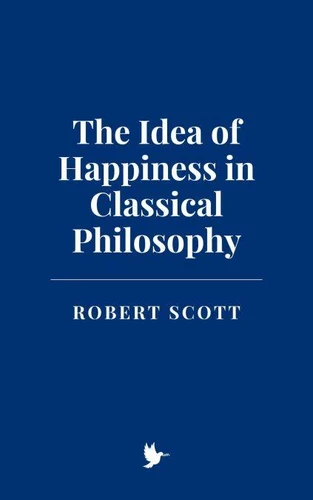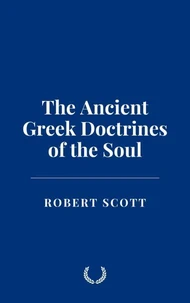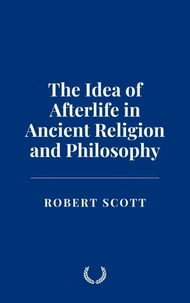The Idea of Happiness in Classical Philosophy
Par :Formats :
Disponible dans votre compte client Decitre ou Furet du Nord dès validation de votre commande. Le format ePub est :
- Compatible avec une lecture sur My Vivlio (smartphone, tablette, ordinateur)
- Compatible avec une lecture sur liseuses Vivlio
- Pour les liseuses autres que Vivlio, vous devez utiliser le logiciel Adobe Digital Edition. Non compatible avec la lecture sur les liseuses Kindle, Remarkable et Sony
 , qui est-ce ?
, qui est-ce ?Notre partenaire de plateforme de lecture numérique où vous retrouverez l'ensemble de vos ebooks gratuitement
Pour en savoir plus sur nos ebooks, consultez notre aide en ligne ici
- FormatePub
- ISBN8230176855
- EAN9798230176855
- Date de parution15/01/2025
- Protection num.pas de protection
- Infos supplémentairesepub
- ÉditeurIndependently Published
Résumé
The concept of happiness has occupied a central place in the history of philosophical thought, particularly within the classical tradition. From the earliest musings of Pre-Socratic thinkers to the intricate ethical systems of Aristotle and the Stoics, happiness-or eudaimonia-was often regarded as the ultimate purpose of human life. Yet, while happiness was universally acknowledged as an essential pursuit, its definition and the means of achieving it varied greatly.
This divergence in thought reflects not only philosophical disputes but also broader cultural, historical, and social transformations that shaped the classical world. The classical Greek term eudaimonia is often translated as "happiness, " though it encompasses meanings more nuanced than the modern, subjective notion of emotional contentment. The word itself suggests something closer to "flourishing" or "living well, " with a strong implication of moral and intellectual excellence.
This linguistic distinction is crucial for understanding how ancient philosophers framed the discussion. For them, happiness was not a fleeting state of mind but an enduring condition of the soul, achieved through the cultivation of virtue, reason, and alignment with cosmic or divine principles.
This divergence in thought reflects not only philosophical disputes but also broader cultural, historical, and social transformations that shaped the classical world. The classical Greek term eudaimonia is often translated as "happiness, " though it encompasses meanings more nuanced than the modern, subjective notion of emotional contentment. The word itself suggests something closer to "flourishing" or "living well, " with a strong implication of moral and intellectual excellence.
This linguistic distinction is crucial for understanding how ancient philosophers framed the discussion. For them, happiness was not a fleeting state of mind but an enduring condition of the soul, achieved through the cultivation of virtue, reason, and alignment with cosmic or divine principles.
The concept of happiness has occupied a central place in the history of philosophical thought, particularly within the classical tradition. From the earliest musings of Pre-Socratic thinkers to the intricate ethical systems of Aristotle and the Stoics, happiness-or eudaimonia-was often regarded as the ultimate purpose of human life. Yet, while happiness was universally acknowledged as an essential pursuit, its definition and the means of achieving it varied greatly.
This divergence in thought reflects not only philosophical disputes but also broader cultural, historical, and social transformations that shaped the classical world. The classical Greek term eudaimonia is often translated as "happiness, " though it encompasses meanings more nuanced than the modern, subjective notion of emotional contentment. The word itself suggests something closer to "flourishing" or "living well, " with a strong implication of moral and intellectual excellence.
This linguistic distinction is crucial for understanding how ancient philosophers framed the discussion. For them, happiness was not a fleeting state of mind but an enduring condition of the soul, achieved through the cultivation of virtue, reason, and alignment with cosmic or divine principles.
This divergence in thought reflects not only philosophical disputes but also broader cultural, historical, and social transformations that shaped the classical world. The classical Greek term eudaimonia is often translated as "happiness, " though it encompasses meanings more nuanced than the modern, subjective notion of emotional contentment. The word itself suggests something closer to "flourishing" or "living well, " with a strong implication of moral and intellectual excellence.
This linguistic distinction is crucial for understanding how ancient philosophers framed the discussion. For them, happiness was not a fleeting state of mind but an enduring condition of the soul, achieved through the cultivation of virtue, reason, and alignment with cosmic or divine principles.























